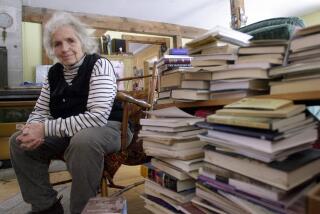Israel protests show nationâs beating heart
Israel has never been an egalitarian state. But in its heyday, it was more egalitarian than most states in the world. The poverty wasnât acute and the wealth wasnât ostentatious, and social responsibility toward the poor and needy was shown not only on the economic level but on the emotional level too.
In the earlier Israel, those who worked â and almost all the women and men worked very hard â could make a modest but respectable living for themselves and their families. The new immigrants, the refugees, the immigrant camp dwellers all received public education, health services and housing. Young, poor Israel was a master social-entrepreneur.
But all that has been destroyed in the past 30 years, as a succession of Israeli governments encouraged and inflamed the economic jungle laws of grab as grab can.
Many Israelis are now saying theyâve had enough. Last month, thousands of people took to the streets to protest soaring housing prices, setting up a tent encampment along upscale Rothschild Boulevard in Tel Aviv. And their dissatisfaction has proved infectious. Parents have rallied against the high cost of child care; doctors have marched to protest hospital overcrowding.
The protest washing over Israelâs streets and squares today has long ceased to be merely a protest over housing distress. The heart of this protest is the affront and outrage over the governmentâs indifference to the peopleâs suffering, the double standard against the working population and the destruction of social solidarity.
The heartwarming sights of the tent cities and demonstrations spreading through Israelâs cities are in themselves a delightful revival of the kind of mutual fraternity and commitment that built the nation.
After all, the first thing these demonstrators are saying, even before âsocial justiceâ and âdown with the government,â is: âWe are brethren.â
The resources required for reestablishing social justice in Israel are located in three places:
First, the billions Israel has invested in the settlements, which are the greatest mistake in the stateâs history, as well as its greatest injustice.
Second, the mammoth sums channeled into the ultra-Orthodox yeshivas, where generations of ignorant bums are nurtured, filled with contempt toward the state, its people and the 21st century reality.
And third, and perhaps foremost, the passionate support of Prime Minister Benjamin Netanyahuâs government and its predecessors for the unbridled enrichment of various tycoons and their cronies, at the expense of the middle class and the poor.
Let us not forget where the wealth pouring into the settlements, the yeshivas and the tycoonsâ accounts comes from. It comes from the labor and creative talents of millions of Israelis who are carrying on their back a unique economic wonder of a state poor in natural gifts (we havenât started counting the natural gas yet), and rich in human resources.
Neither the parties nor the veteran opposition organizations generated this protest. It was born out of the devotion and enthusiasm of hundreds and thousands of young people who swept along in their wake the best people in the country.
It is profoundly moving to see the protest veterans of all generations, who for years were a voice calling in the wilderness, spending time in the tents of the youngsters, who are wisely leading the new protest.
People like me, who have protested for many years against the policy of Israelâs governments, embrace this new generation, which surpasses the previous ones, with love and wonderment.
Israeli writer Amos Oz is the author of âRhyming Life and Death,â âA Tale of Love and Darkness,â and many other works of fiction and nonfiction.
More to Read
A cure for the common opinion
Get thought-provoking perspectives with our weekly newsletter.
You may occasionally receive promotional content from the Los Angeles Times.










